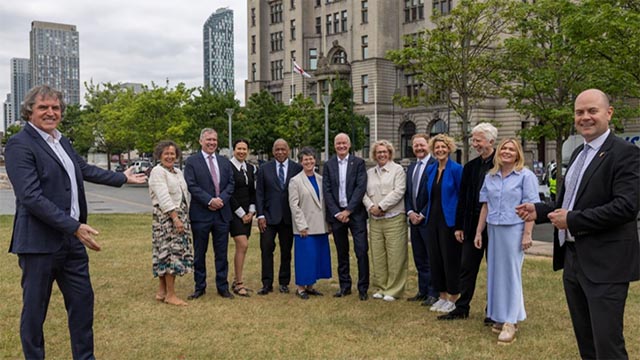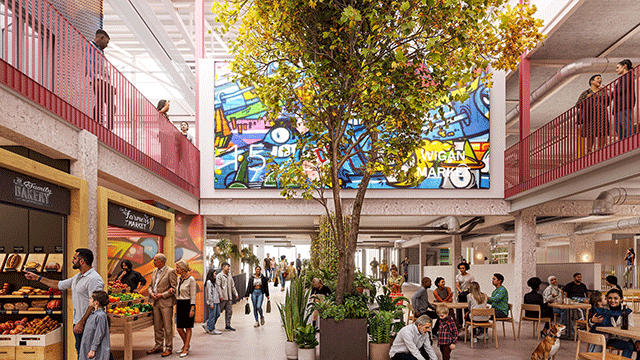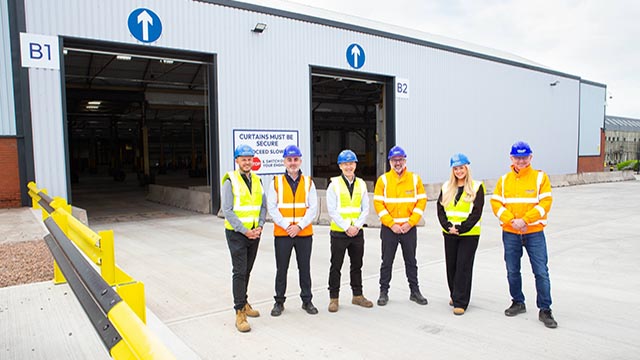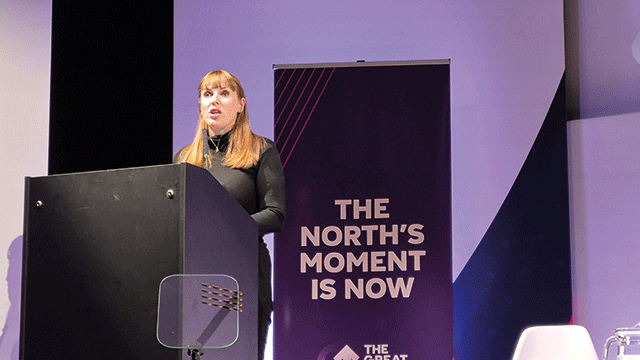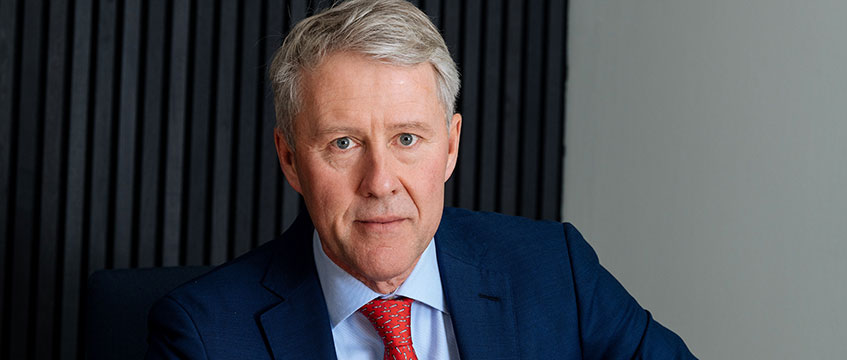DIFA is the second largest manager of open-ended funds. Both its funds have been concentrating on development, particularly mixed-use schemes in urban areas
In 2001, €1.1bn was committed to DIFA Deutsche Immobilien Fonds’ two open-ended funds. This helped the property asset management company, a subsidiary of Union Investment Group, to rank second in the sector, with a market share of 17.9%. The two funds’ assets total €10.8bn: DIFA-Fonds 1 has €7.4bn, while the second fund, DIFA-GRUND, owns €3.4bn.
DIFA has adopted a similar investment strategy for both its funds, with a focus on development. As at 31 March 2002, the portfolio totalled 1.6m m2, with around 520,000m2 being developed.
Inner-city redevelopments play an important role in DIFA’s strategy. The fund manager is creating mixed-use schemes under the CityQuartiere brand. Dr Manfred Lohr, marketing manager of DIFA, says: “These are large-scale schemes in urban environments, which combine several property types, offering space to work, shops and hotels, plus homes.”
The first project of this kind was Frankfurter Welle, a €650m mixed-use scheme on a prime site in Frankfurt’s central business district. Here, serviced office operator Regus has opened a 13,000m2 business centre – its largest in Europe. Around 68% of Frankfurter Welle’s 73,000m2 of office space has been taken up.
A similar project is under way in Berlin, following DIFA’s Neues Kranzler Eck scheme on Kurfürstendamm in City West, which opened in December 2000. DIFA is investing €476m on the DomAquarée project, near Berlin Cathedral in City Ost, which includes 19,500m2 of office space, shops, 13,500m2 of leisure space and 8,500m2 of housing. The scheme also has a four-star hotel, which Radisson will operate under a long-term contract.
Lohr is positive about the scheme’s letting prospects: “We expect demand in Berlin to slacken, but our project will not come to the market until the autumn of 2003 and by then demand will have picked up again. Also, as talks with potential tenants have shown, the unique mix of property types draws tenants to the scheme.”
Rising office demand will also help the Neues Kranzler Eck development. All 22,000m2 of its retail space has been let, but so far only 55 % of the 43,000m2 of office space has been occupied. DIFA expects occupancy to increase to more than 75% by the end of the year.
Offices account for around 58% of the portfolio. DIFA also invests in hotels; so far the two funds have bought 15. “We are looking for inner-city business hotels, mainly in the 4-star range,” says Lohr.
In geographic terms, the fund managers are looking at larger, liquid markets. DIFA has invested €3.3bn in Frankfurt and Berlin, and Munich is also high up its agenda; here, it is engaged in a project in Messestadt Riem, where an exhibition centre is being built on the site of the former airport. DIFA is working on a €449m mixed-use scheme with German shopping-centre developer mfi Management für Immobilien. The project has 120,000m2 of retail and leisure space plus a hotel, and is due for completion in autumn 2003.
Around 30% of the funds’ assets are invested outside Germany. “It is our policy to build up portfolios of more than €150m,” says Lohr. The main investment markets are London and Paris.
DIFA also plans to increase its exposure in Portugal and Spain. Last October, it invested €52m in a two-building office development at Necsohenar Business Park on the edge of Madrid’s city centre, totalling 20,000m2.
|
Financial highlights |
||
|
The two funds have total assets of €10.8bn |
||
|
DIFA-Fonds 1 |
DIFA-GRUND |
|
|
Total assets €m |
7,405 |
3,381 |
|
Property assets €m |
5,471 |
2,201 |
|
Shares in property companies €m |
181 |
– |
|
Overall return, year to 31 March 2002 |
5.6% |
5.0% |
|
Source:DIFA |
||
Difa Deutsche Immobilien Fonds AG
Caffamacherreihe 8
20355 Hamburg
Tel 49 49 34919 0
Telefax 49 40 34919 191
www.difa.de




